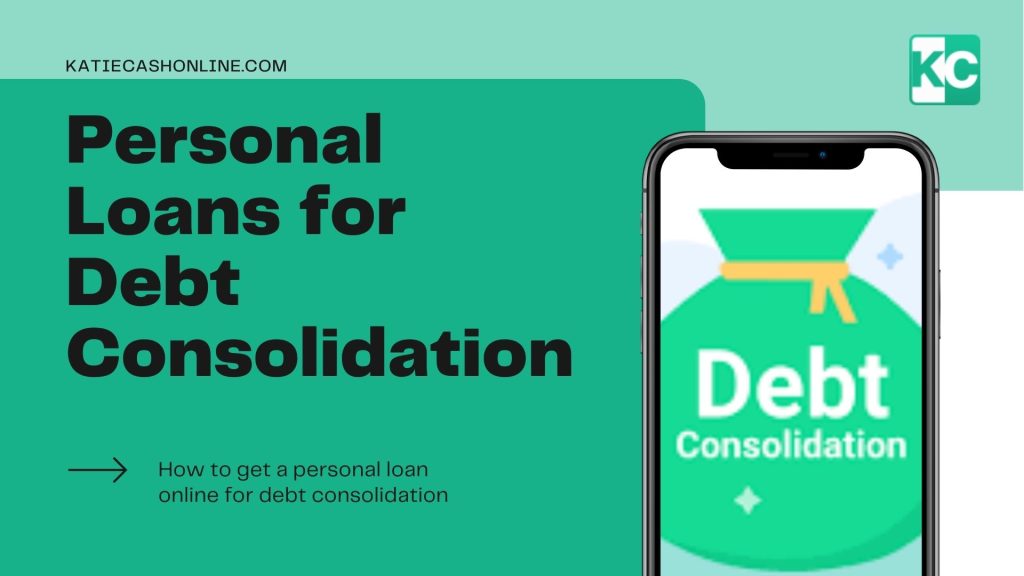Debt consolidation is a popular option for induviduals struggling with multiple debts. A consolidation loan can help simplify their monthly payments. By combining all their debts into one loan, people can lower their monthly installments and reduce interest rates, as a personal loan is usually taken out at a lower interest rate than the existing debts.
The process of debt consolidation comprises applying for a personal loan or a credit card and using these funds to repay all existing debts. It’s more convenient for the borrower to make a single monthly payment to repay the consolidated loan.
The two main types of debt consolidation loans are secured and unsecured loans. Secured loans are backed by collateral, while unsecured loans are not backed by valuable items, and tend to have higher interest rates. Despite the differences, interest rates on both types of loans are usually lower than those on credit cards, and the rates are fixed.
Credit card refinancing is one of the options for debt consolidation. This means transferring high-interest credit card balances to a card with a lower interest rate. This method is used to lower monthly payments and reduce the amount of interest over time. However, it’s important to read the terms and conditions carefully and understand any hidden fees that may be associated with the transfer.
Debt consolidation programs are also worth consideration, as they work by negotiating with creditors on behalf of the borrower to lower interest rates and simplify the debt repayment process. This is the option for people who are unable to get a consolidation loan.
Useful Tips To Consolidate Your Debt
Here are some tips on how to consolidate debt:
- Calculate your total debt and create a list of all your creditors.
- Prioritize the debts to pay off first.
- Compare different lenders and read reviews of customers to choose the best debt consolidation loan options, including interest rates, fees, and repayment terms.
- Prequalify, if possible, as you can submit details about your financing needs and other relevant information to find out what terms and conditions you are likely to apply. The pre-qualification process requires a soft credit inquiry.
- Make sure you meet the lender’s standards for income and creditworthiness.
- Gather all necessary documents, such as income proof, letter of employment, debt statements, and other related papers.
- Apply for the loan and wait for approval.
- Avoid falling into debt again not to harm your credit score and financial situation.
Is Consolidation Loan a Good Idea?
Debt consolidation is not a universal solution, and it’s important to consider the pros and cons before you make a decision. Some benefits include lower monthly payments, reduced interest rates, and simplified bill payments. In addition, it can help improve your credit score. By consolidating debt, you may be able to pay off your debts faster and avoid taking on additional debt. However, some of the drawbacks include extended repayment terms, the potential for higher interest rates, and reduced credit scores.
Among downsides, we can mention hidden fees, such as prepayment penalties, and origination fees, so the overall value of your loan can be higher. Despite the manageability of debt consolidation, it does not pay your debts down, and you still have to pay your monthly installments. So, a consolidation loan doesn’t solve the overspending issue. Other risks may result in paying more in the long run if you keep using credit cards.
Debt Consolidation Loans for Bad Credit
If you have a bad credit score, it can be challenging to qualify for a debt consolidation loan with a traditional lender. But there are some online lenders offering loans with no credit check or for borrowers with poor credit history. There are services specializing in matching such lenders. Some of them may require a co-signer or offer higher interest rates.
How to Consolidate Debt: Alternative Options
Here are some other less popular variants for debt consolidation:
- Home Equity Loan. For homeowners, a home equity loan can be an effective way to consolidate debt. This type of loan is secured with collateral and usually offers interest rates similar to mortgage rates, which are lower than credit card interest rates.
- Student Loan Program. The government provides several consolidation options for student loans, including direct consolidation loans. The interest rate depends on the average of your previous loans.
- Debt Settlement/Credit Counseling. It focuses on reducing debt, not creditors. Individuals can choose to work with credit counseling services or debt-relief organizations to negotiate with creditors.
To conclude, it’s important to carefully consider all aspects of debt consolidation, including the potential benefits and risks. We recommend looking for a financial professional to help you cope with your situation. The best approach to consolidating and paying off debt depends on different factors such as total debt amount, repayment ability, credit score, and financial situation. A loan from a reputable lender can be more effective than credit cards, payday loans, or balance transfers.

